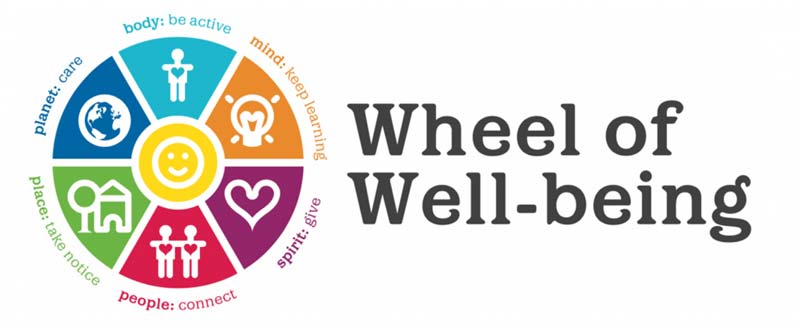News & Blog
Starting the conversation about mental health: a message from our HR manager
1 in 6 adults in the past week experienced a common mental health problem such as anxiety or depression. Last year the Mental Health Foundation found that 30% of all adults have felt so stressed by body image and appearance that they felt overwhelmed or unable to cope. 50% of mental health problems, including those related to body image, are established by age 14 and 75% by age 24. During this Mental Health Week we want to highlight these issues and raise awareness around tackling them.
Looking after your mental health:

A compelling body of international evidence links our happiness with longer and more fulfilling lives, better mental and physical health, stronger relationships and a range of other psychological, social and economic benefits.
There are a number of things you can do on a daily basis to look after your health and wellbeing, from talking about your feelings and keeping active and eating well, to doing something you're good at and accepting who you are.
For tips on how you can help yourself, take a look at the Wheel of Well-Being and create a Wow Tracker with tick activities to try.
Starting the Conversation
MKC Training are signed up to a commitment with the Building Mental Health Charter. The Charter creates a freely available, industry-wide framework and charter to tackle the mental health crisis in the construction industry. Part of that is talking about it. Don't know how?
We know talking about mental health is not always easy. But starting a conversation doesn't have to be awkward, and being there for someone can make a huge difference.
1. Ask questions and listen
Asking questions can give the person space to express how they're feeling and what they're going through, and it will help you to understand their experience better. Try to ask questions that are open and not leading or judgemental – such as "how does that affect you?" or "what does it feel like?"
2. Think about the time & place
Sometimes it's easier to talk side by side rather than face to face. So, if you do talk in person, you might want to chat while you are doing something else. You could start a conversation when you're walking, cooking or stuck in traffic. However, don't let the search for the perfect place put you off!
3. Don't try & fix it
It can be hard to see someone you care about having a difficult time but try to resist the urge to offer quick fixes to what they're going through. Learning to manage or recover from a mental health problem can be a long journey, and they've likely already considered lots of different tools and strategies. Just talking can be really powerful, so unless they've asked for advice directly, it might be best just to listen.
4. Treat them the same
When someone has a mental health problem, they're still the same person as they were before. And that means when a friend or loved one opens up about mental health, they don't want to be treated any differently. If you want to support them, keep it simple. Do the things you'd normally do.
5. Be patient
No matter how hard you try, some people might not be ready to talk about what they're going through. That's ok – the fact that you've tried to talk to them about it may make it easier for them to open up another time.
And there are lots of things you can do to support them even if you're not talking:
- Doing things together
- Sending a text to let them know you're thinking of them
- Offering to help with day-to-day tasks.
Did you know that there are free health and wellbeing learning resources?
Develop your Career Resilience
Look after your mental health or
Mind: How to manage stress and developing emotional resilience
Author: Carrie Bailey, HR Manager
MKC Training are signed up to a commitment with the Building Mental Health Charter.
Discover our other posts by category:
- Apprenticeships (3 posts)
- Armed Forces (7 posts)
- Company News (20 posts)
- Construction (7 posts)
- Courses (10 posts)
- Covid-19 (4 posts)
- Cyber and IT (4 posts)
- eLearning (6 posts)
- Engineering (2 posts)
- Events (4 posts)
- Exams (2 posts)
- Gamification (4 posts)
- Gas (1 post)
- Health and Safety (5 posts)
- ITIL (10 posts)
- Project
Management (21 posts) - Scaffolding (1 post)
- Technology (12 posts)
- Training Strategy (8 posts)